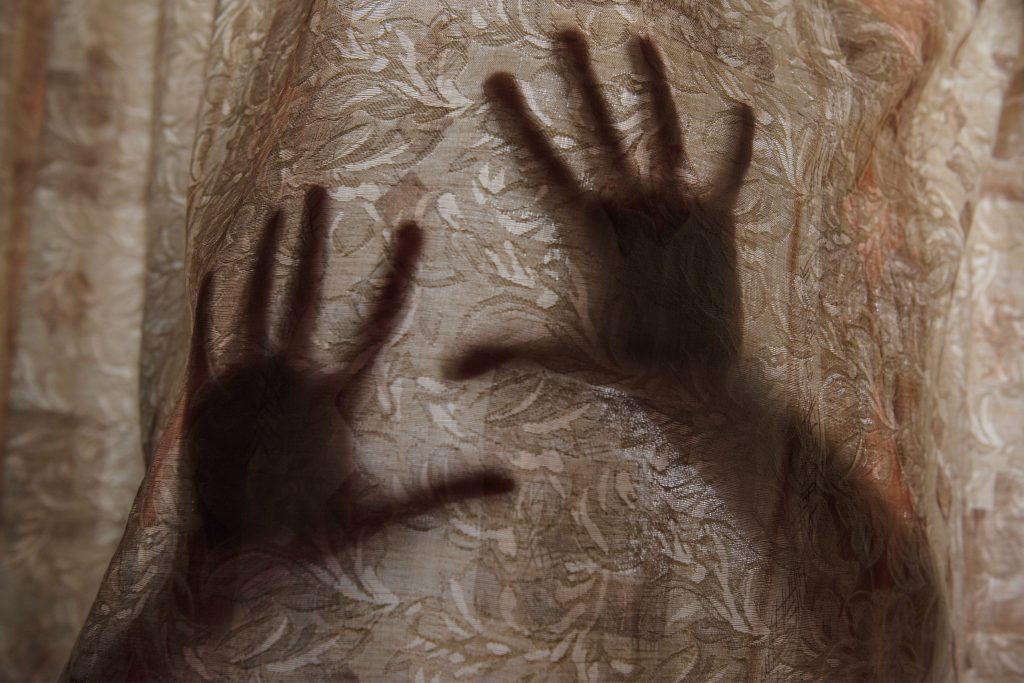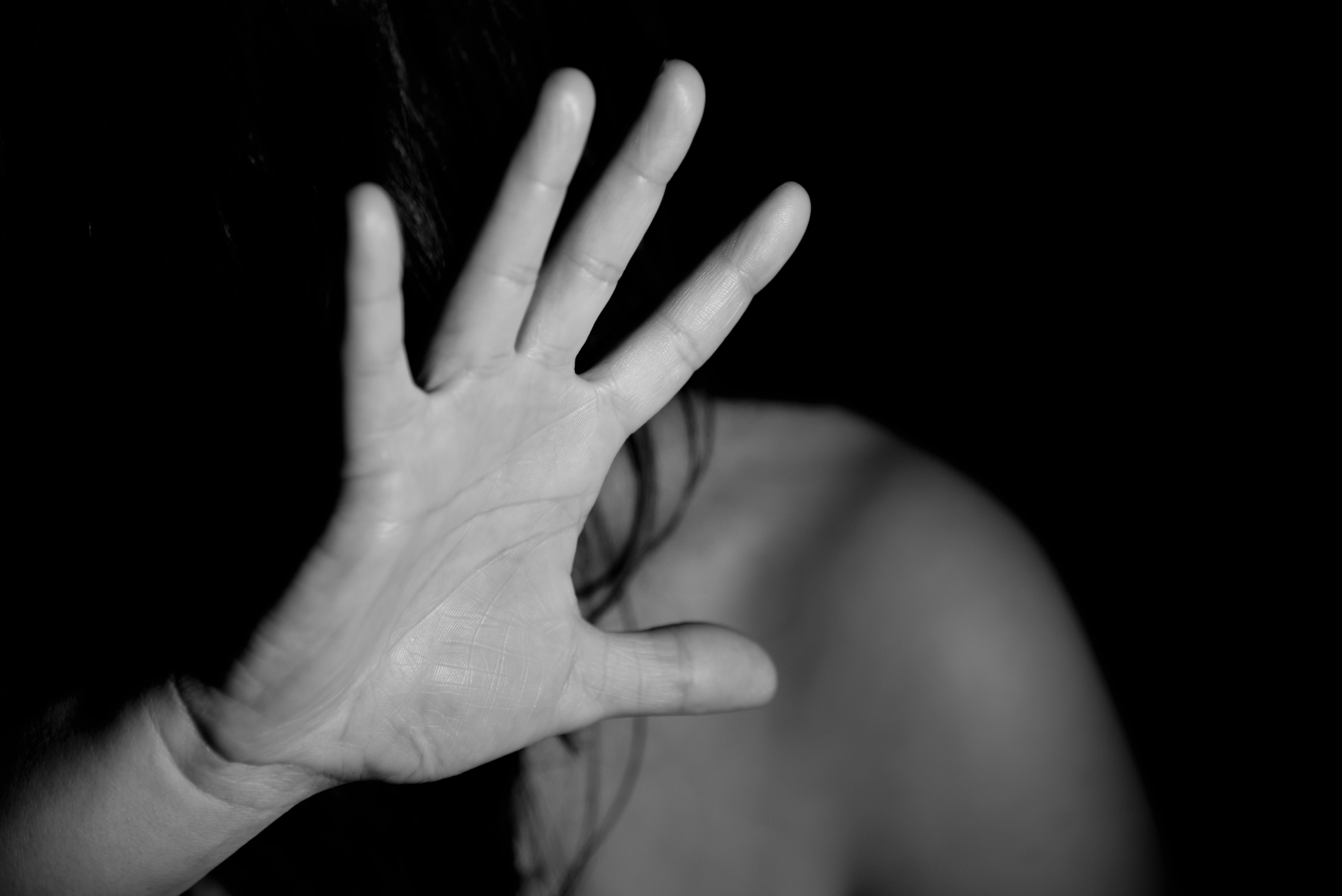This year’s 16 Days of Activism sees 30 organisations calling on the government to protect migrant women experiencing domestic abuse and exploitation. Campaigners highlight how the Home Office’s hostile environment policy sees abusers use the threat of deportation as a tool of coercion and prevents domestic abuse victims seeking help.
16 Days of Activism Against Gender-Based Violence is an annual global campaign, beginning on 25th November (the Day for the Elimination of Violence against Women and Girls) until 10th December (Human Rights Day), focusing on ending violence against women.
In the UK around 30 organisations, including Women’s Aid, Amnesty International and Liberty, have joined forces behind Step Up Migrant Women, a campaign raising awareness around how the Home Office’s hostile environment policy prevents migrant women from reporting cases of domestic violence and abuse to the police.
Losing the Right to Remain is Used as a Tool of Coercion by Abusers
 Credit: Counselling Pixabay
Credit: Counselling Pixabay
The hostile environment policy, introduced by Theresa May as Home Secretary, aims to alienate people in the UK without the required leave to remain. It places a duty on civil society with landlords, employers, charities and public servants, including NHS employees and the police force, to report individuals suspected of being in the UK without leave to remain to the Home Office.
However, in the name of tough immigration control, the hostile environment has resulted in police officers acting as immigration officers and sharing sensitive information of victims of crime with the Home Office. Research this year has highlighted that more than half of the 45 police forces questioned have reported a victim of crime’s immigration status to the Home Office.
The implications of these practices can deeply affect migrants in the UK, particularly women who are victims of domestic violence and abuse. A forthcoming study carried out by Professor Cathy McIlwaine and Dr Yara Evans, at King’s College London has gathered evidence of the difficulties and barriers migrant women who are victims of domestic violence, face when they seek justice and support.
The study found migrant women came to the UK via perfectly legal means, but because their immigration status is so closely tied to their partner this can be used as a tool of coercion by perpetrators of abuse.
For example, the study has found that many migrant women came to the UK via perfectly legal means, but because their immigration status and right to say in the UK, is so closely tied to their partner, this can be used as a tool of coercion by perpetrators of abuse.
The study analyses the circumstances of women from Asia, Latin America, the Middle East and Africa who have experienced violence in Britain. Many came as spouses of British citizens but their experience in Britain is far from positive – some have suffered physical and emotional abuse by their spouses and sometimes in-laws too.
I was afraid to go to the police because my husband told me they would arrest me and take my children away. I felt terrified and trapped.
Domestic abuse survivor
There are reports of women being forced into domestic servitude and coerced into doing incessant house work for their husband and their families. Often, when the woman confronts her abuser, the abuser threatens to contact the Home Office and say they are no longer together, which is likely to cause the woman’s right to stay in the UK to be revoked.
In many cases victims have children so having their right to remain in the UK revoked and being deported can mean leaving their children behind. “I was afraid to go to the police because my husband told me they would arrest me and take my children away. I felt terrified and trapped,” confided a survivor from the Middle East.
40% of 183 women stayed in an abusive relationship for more than five years out of fear of deportation, and 92% of these women reported threats of deportation from perpetrator.
A survey by Imkaan, an organisation dedicated to addressing violence against black and minority ethnic women, analysed how the immigration status of migrant women is used as a means of control. The study found that 40% of 183 women stayed in an abusive relationship for more than five years out of fear of deportation, and 92% of these women reported threats of deportation from perpetrator.
As a result, the Step Up Migrant Women campaign is calling for legislation to be put in place to ensure safe reporting mechanisms for migrant women experiencing domestic abuse so when they come forward to report crimes, they are not reported to Home Office immigration officials and their data is not shared.
Migrant Women’s Rights are Human Rights
Credit: Step Up Migrant Women
Step Up Migrant Women highlights how the hostile environment prioritises immigration enforcement over human rights, with migrant women failing to report domestic violence, abuse and domestic servitude for fear of being treated as a criminal. The campaign stresses that the rights of migrant women are human rights, and that nobody fleeing domestic violence should be detained, deported or made destitute.
Campaigners, led by Latin American Women’s Rights Service (LAWRS), believe that the hostile environment puts the basic human rights of migrant women who are victims of domestic abuse at risk. Human rights that are protected by the Human Rights Act 1998, regardless of nationality, background or immigration status, including Article 2 The Right to Life; Article 4 The Right to be Free from Slavery or Servitude; Article 3 The Right not to be Subjected to Torture or Inhuman or Degrading Treatment, and Article 8 The Right to Private and Family Life.
The duty of the police and statutory services is not to criminalise victims’ immigration status but that of promoting public safety and protecting all victims of crime and abuse.
Illary Valenzuela, Step Up Migrant Women
Step Up Migrant Women coordinator Illary Valenzuela says, “Stigma and misconceptions about immigration status cause migrant women to be dehumanised and deprived from their rights. The duty of the police and statutory services is not to criminalise victims’ immigration status but that of promoting public safety and protecting all victims of crime and abuse”.
Sawsan Salim, director of Kurdish and Middle Eastern Women’s Organisation adds, “Women should not have to choose between abuse or deportation. Immigration and violence should not exist hand in hand.”
Calls for a Survivor-Focused Domestic Violence and Abuse Bill
 Credit: Vidhyaa Unsplash
Credit: Vidhyaa Unsplash
Step Up Migrant Women is working with policy-makers to implement safe reporting mechanisms into the UK’s Domestic Violence and Abuse Bill which is scheduled to go before parliament early next year.
However, the current version of the Bill makes no mention of provision of rights for migrant women experiencing domestic violence, neither does it ensure access to support services. “As the Step Up Migrant Women coalition we stress the importance of having a victim-centred Bill that acknowledges the rights of migrant women,” says Valenzuela.
The European Commission against Racism and Intolerance suggests a ‘firewall’ which makes a clear distinction between criminal justice and immigration matters.
Campaigners point towards regulations at an international level that guarantee women’s rights regardless of their nationality and immigration status. The European Commission against Racism and Intolerance suggests the implementation of a ‘firewall’ which makes a clear distinction between criminal justice and immigration matters. Once the firewall is in place, victims with insecure immigration status can report crimes to the police without being arrested, or face deportation.
The coalition is also pushing for the UK to ratify the Istanbul convention which it signed in 2012. It prohibits discrimination on the grounds of migration status and suggests granting women whose status is dependent on a violent partner or spouse, their own residence permit when the relationship ends.
I became destitute and I lost custody of my daughter because of my immigration status. My humanity should be above the passport I hold.
Domestic abuse survivor from Brazil
A survivor of domestic violence from Brazil who came to the UK in 2015 with a British partner, says, “I became destitute and I lost custody of my daughter because of my immigration status. Right now, I am in the Home Office’s hands. I am not free. Motherhood doesn’t exist anymore. My humanity should be above the passport I hold.”






